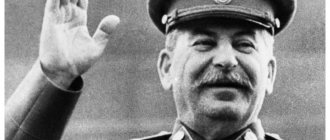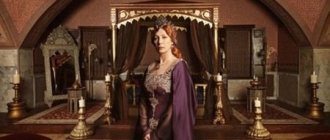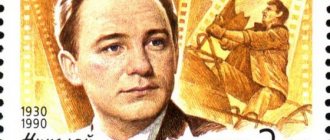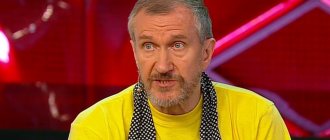Recep Tayyip Erdogan is a famous politician and the current President of Turkey, who is often compared to the great Sultan. He became the head of state after applying business acumen, intelligence, as well as incredible perseverance and willpower.
Erdogan comes from the common people, he never hid his own convictions, beliefs and political preferences from anyone.
Fans of the actions of the President of Turkey point out that with him the country can reach unprecedented heights, becoming as great as the Ottoman Empire in the old days.
Height, weight, age. How old is Recep Tayyip Erdogan
Supporters and critics of the actions of the politician and the current head of Turkey want to clarify his height, weight, age. It is very easy to find out how old Recep Tayyip Erdogan is, since his date of birth is known.
Erdogan was born in 1954, so he is already sixty-three years old. At the same time, Recep Tayyip Erdogan: the photos in his youth and now are the same, because from them a serious man of the Eastern type looks at us with an intelligent and insightful gaze.
At the same time, the zodiac sign – Pisces – endowed the future President with such character traits as daydreaming, creativity, smiling and witty, as well as resourcefulness. The eastern type horoscope gave the man the sign of a hardworking, ambitious, stable Horse.
Many people are interested in the nationality of the politician and the head of Turkey, so it is worth noting that he is Turkish, but Georgian blood also flows in his veins. There are suggestions that Erdogan is an Adjarian, Armenian, Jew or even Greek, although the man denies his belonging to these nationalities.
Recep's height is one meter and eighty-three centimeters, and his weight is ninety-seven kilograms.
Five versions of Erdogan’s origins – News
15 March 666
Valery Valerievich Fedorov
Russian political scientist and sociologist, general director of the All-Russian Center for the Study of Public Opinion (VTsIOM).
The personality of Turkish President Recep Tayyip Erdogan is perhaps one of the most discussed in the world press. In recent years, the biography of the politician has also been studied in academic circles, trying to find out the ethnic origin of the odious Turkish leader.
It has been proven that ethnomental characteristics determine the behavior and characteristics of a particular person. In this context, the observations of specialists who study the ethnopsychological manifestations of political figures are interesting.
Turkish academic circles are also showing interest in the topic of genealogical research of their politicians. However, such work often does not receive publicity, and this is understandable. After all, in Turkey, all citizens are considered “Turks,” however, there is no exact ethnic definition of who modern Turks are.
During the heyday of the Ottoman Empire, when intensive assimilation processes took place, identity was largely determined by the religious factor. In modern Turkey, many ethnic groups continue to identify themselves along religious lines.
Thus, often Turks who profess an extreme form of Shiism call themselves Alevis, bringing themselves closer to the Zaza Alevis living in the Tunceli-Elazig region. And Sunni Kurds living surrounded by Sunni Turks in Ankara or Konya call themselves “Turks,” which in the minds of the Kurds living in this region means being Sunni.
Many areas of Turkey are ethnically and religiously diverse. In this regard, the eastern part of the Turkish Black Sea region can also be noted. The ancestors of the current President Erdogan come from this region.
According to the official biography of the Turkish president, he was born in the European part of Istanbul, namely in the Beyoglu region. The quarter in which the future president of the country was born is called Kasimpasha, and the district is Kulaksyz. In this area, the majority of residents are from the Turkish Black Sea region.
Researchers tend to consider several versions of the origin of the head of the Turkish state.
The genealogy of the Turkish leader, issues related to the study of the pedigree of Erdogan’s family, periods of ethnic contacts occurring in the region, historical parallels, as well as sociocultural and ethnopsychological characteristics of the politician’s behavior are taken into account. Greek origin
In recent years, Turkish journalists and researchers have been studying data on the possible Greek origin of Recep Tayyip Erdogan. Many facts point to the fact that the Turkish leader may be a descendant of Greeks who converted to Islam.
This is also evidenced by archival materials from the period of the Ottoman Empire.
Thus, according to Ottoman archives, in 1530, 228 Orthodox Greeks and 28 so-called “new Turks”, that is, Greeks converted to Islam, lived in the Pontic village of Potamya. It was from this period that the process of intensive Islamization began in the region.
Already in 1850, there were no Orthodox Greeks in the village; the inhabitants were listed as “Turks”, while retaining some national characteristics. Meanwhile, the surrounding peoples, the newly converted Greeks, were called “Bakat”, which in Ottoman meant “protesters” and was usually applied to Greeks who resisted Turkish authorities.
Surprisingly, the surname of Erdogan’s family is Bakatoglu. Recep Tayyip Erdogan's great-grandfather's name was Memis. Being a fairly rich man, Memis Bakatoglu was on the list of the largest taxpayers in the village.
According to researchers, the ancestors of the current Turkish president changed their surname from Bakatoglu to Erdogan only in 1934. Since the 1930s of the last century, Turkish authorities have renamed the names of villages and cities in the country. The names of citizens also changed completely. It was during this period that the village with the Greek name Potamya was renamed Guneysu. However, the villagers still use the old name, which, according to many researchers, indicates the “drifting” identity of the local residents. By the way, in the village square you can still see a large sign with the inscription “Potamya Hos Geldiginiz”, which means “Welcome to Potamya”.
Erdogan himself denies his Greek origins. However, the President of Turkey had previously visited his ancestral village, communicated with the villagers and willingly talked about his ancestors who lived in Potamia.
Let us note that the region of the Turkish Black Sea region still remains the habitat of Greek Muslims, who, in particular, are concentrated in Machka, Tonja, Ofa, Emre, in Sürmen and other areas of the Black Sea region.
Georgian (Adjarian) origin
The Turkish region, where Erdogan’s family comes from, as already noted, is distinguished by ethnic diversity. Georgians are also mentioned among the inhabitants of some areas of the Rize province. The only compact village of Georgians is Hamidiye. The village residents come from Adjara, in particular from the surrounding villages of Batumi.
Muslim Georgians appeared in Rize in 1873. They are still called the descendants of the muhajirs (Muslims who moved to the Ottoman Empire because of their faith). Traditionally, the majority of Muslim Georgians live in the provinces of Ordu and Samsun. Their share in the province of Rize is insignificant. Therefore, the version about Erdogan’s Georgian origin seems doubtful.
However, back on August 11, 2004, while visiting Georgia, the Turkish leader emphasized his Georgian origin, saying that his ancestors came from Batumi. Although Erdogan's Georgian origin remains questionable, there is a possibility that the Turkish president's ancestors are ethnic Georgians.
According to some informants, in Erdogan’s ancestral village of Güneysu there are two mahals (neighborhoods) where Turks of Georgian origin live. These are Adachami and Ashagi Kiremit. It is noteworthy that Adjarian Muslims themselves deny Erdogan’s Georgian origin, believing that the Turkish president is not a Georgian, but a Laz.
Laz origin
The Lazy people are close to the Georgians. Of all the Kartvelian groups, in linguistic terms, the Laz are only close to the Mingrelians. However, unlike the Mingrelians, the Laz profess Islam. Moreover, many of them are ardent Muslims. Most of the holes are heavily turkified. Turkization and subsequent linguistic and ethnic assimilation occurred so intensely that entire areas that were previously considered Laz lost their ethnic coloring.
However, despite the deep assimilation processes that have taken place for centuries in the Turkish Black Sea region, the Laz have retained some ethnic areas of residence. The Laz who have retained their identity mainly live in the province of Rize, as well as in Ardvina. Separate groups of Laz live compactly in other regions of Turkey, including Istanbul.
It is worth noting that not only Kartvelian-speaking Muslims are called Laz, but also many people from the Turkish Black Sea region. Therefore, the ethnoterm “Lazi” often serves as a collective name for many residents of various ethnic origins whose roots are in this Turkish region.
As for the version of Erdogan’s Laz origins, researchers point to the fact that in the village of Güneysu there are indeed families of ethnic Laz, but it is difficult to prove whether the Turkish leader has any family ties with the local Laz residents. Some Ankara researchers believe that Erdogan is anthropologically similar to the Laz people living in the region. It is noteworthy that the area of Istanbul in which the future politician was born is partly inhabited by Laz, also immigrants from Rize.
Turkic origin
The first Turkic tribes that found themselves in the Pontus region were the Chepni, who played a key role in the Islamization of the region. It was they who asked the Sultan to protect them from “non-believers.” The “non-believers” meant their neighbors, the Pontic Greeks, Laz and Armenians.
It was this Turkic community that was the support of the Turkish sultans in the region, playing an active role in the assimilation of the Greek population.
The inhabitants of eastern Trabzon, who now consider themselves descendants of the Chepni, are in reality the remnants of the Islamized and Turkified Greeks of Pontus. Turkish researcher Omer Asan also wrote about this in his work.
Today's Chepni are divided into Sunnis and Alevis. The former play a dominant role in the political and economic life of the region. The Chepni live not only in Trabzon, Giresun, Ordu and Samsun, but also in Gümüşhane and Rize.
The Turkic ethnic group living in the province of Rize adopted many features of the autochthonous peoples. Folklore is more reminiscent of Laz and Greek than Turkmen proper.
Nevertheless, Chepni villages are found in separate areas in the province of Rize. In Erdogan's ancestral village of Güneysu, the Chepni make up less than 10% of the total population.
Some researchers are inclined to believe that Erdogan comes precisely from the Chepni Turkmens. At the same time, the researchers only refer to the fact that Turks also live in the village of Güneysu. No archival materials indicating the Turkmen origin of Erdogan’s family have yet been identified.
Moreover, Erdogan himself never declared his Turkmen origin, which gives reason to doubt the Turkic - Turkmen origin of the politician.
Armenian (Hemshil) origin
The Turkish Black Sea region is home to a compact population of Islamized Armenians, who in Turkey are called Hemshils, and who in turn are divided into Bash-Hemshils and Hopa-Hemshils. The Bash-Hemshils make up a significant percentage of the population in the regions of Ardeshen, Chamlihemshin (residents of almost 20 settlements), Chaeli (20 settlements of the Hemshils), Findikli (9 out of 21 settlements are villages of Muslim Armenians), Hemshin proper, which is inhabited exclusively by Islamized Armenians, Ikizdere, in which almost all the inhabitants are Muslim Armenians, is also Pazar (out of 49 villages, Muslim Armenians live compactly in 15 villages, mixed with Laz and Muslim Greeks in 12 villages).
The Hopa-Hemshils live in the areas of Borchka, Hopa, Ardanuch, Arkhavi, as well as in the city of Artvin. In addition, there are Hemshil villages in other parts of Turkey, in particular in the provinces of Duzce, Sakarya and Bursa.
Unlike the Bash-Hemshils, the Hopa-Hemshils retained the Armenian language and partially their identity. Meanwhile, the Islamized Armenians of the Rize region are heavily Turkishized, including their compatriots living in the Güneysu region, where Erdogan is from.
According to some researchers, Erdogan’s ancestors are Armenians who converted to Islam and ended up in Güneysu from the Hemshin region, which is now the center of Islamized Armenians in the region. Moreover, according to supporters of this thesis, Erdogan’s family surname, Bakatoglu, before moving from Hemshin to Rize, sounded like Bakatchi or an earlier form Bakatchyan.
In addition, among the Hemshils of Findikli, oral traditions have been preserved that Erdogan’s ancestors converted to Islam at a later time and, in order to live separately from other converted Muslims, they chose Güneysa, which at that historical period was mainly Christian.
Nevertheless, most researchers objectively ignore the version of Erdogan’s Armenian origin.
It is worth noting that the nationality of Turkish presidents has always remained at the epicenter of public attention. Local nationalists still like to speculate on the ethnic origin of the country's leaders.
Turgut Ozal was called a Kurd, Ahmet Sezer a Greek, Kenan Evren a Bosnian, Abdullah Gul an Armenian. The founder of the Turkish Republic, Kemal Ataturk, is considered to be a Jew from the Denme subgroup.
It was Erdogan’s turn, who often accused his opponents of being of a different ethnic origin, but in the end he himself turned out to be not a Turk.
Arman Hakobyan. Especially for Dialogorg.ru
Share
Interesting
In Batumi, protests are taking place in front of the Turkish consulate demanding that Turkey extradite a “thief in law” convicted in this country 21:50, June 1
16
Tigran Avinyan: Tomorrow we will have the first batch of Armenian-made coronavirus tests 21:44, June 1
12
Georgia will not be able to open the border for tourists from Armenia 21:42, June 1
13
Biography and personal life of Recep Tayyip Erdogan
The biography and personal life of Recep Tayyip Erdogan is the story of a man who came from the people, he is ready to do everything for their development and a stable life in prosperity and peace.
The boy was born in Istanbul, Turkey, but soon after his birth he went to the towns of Kasimpas and Ryz. Father - Ahmet Erdogan - worked for a long time in the coast guard service, he was constantly absent from work and did everything to provide for his family.
The mother, Tenzile Erdogan, left her job and devoted herself entirely to her little child and his upbringing or development.
Little Recep was active and always took part in school activities. At the same time, along with school, he graduated from imam-khatib, having the opportunity to become a statesman or religious minister. The young man received all the most necessary knowledge; he knows the Koran perfectly and speaks several languages.
In his youth, Erdogan was not only fond of football, but also played for the local football team, but soon left the sport, since his father was categorically against his son’s football career.
By the way, until the seventies the guy wanted to become a theologian, and then he began to take an active part in political activities and soon decided to devote himself to politics. He served in the army and managed to graduate from Marmara University, where he studied economics and commercial sciences.
Since the age of thirty he has been the chairman of the Welfare Party, and already in 1994 he became the mayor of Istanbul. At the same time, during his reign, he managed to raise the well-being of the residents of the capital, improve its appearance and establish social projects. By the way, Erdogan professes Islam and never stops telling his supporters and enemies about it.
The year 1997 was marked by the fight against the Islamic threat; Erdogan’s party experienced persecution and ceased to exist. At the same time, the military government achieved the removal of an experienced and dangerous politician by imprisoning him for four months. He managed to be released early, and then continued his activities underground, founding the Justice Party.
This political force began to be called pro-government in 2002, and Erdogan took the post of prime minister of the country. He managed to combine secular politics and Islamist values together. Already in 2014, Recep managed to win the presidential elections with a large majority of votes.
Erdogan managed to make the country a leader in many areas, and he constantly adhered to a pro-Russian policy. Already in 2015, there was a crisis in their relations due to the downed SU-24, while the Russian Minister of Defense said that the Turkish leader was collaborating with ISIS and sponsoring it. Since 2020, the authorities of both states were able to reach a consensus, and Recep again began to call Putin his brother and friend.
Erdogan’s personal life is stable, as befits the leader of an Islamic state. He does not cheat on his wife, does not have mistresses and does not have affairs on the side, since Islam prohibits this.
The politician and his wife have been together for almost forty years; she constantly supported him and complemented him.
Why did the descendants of Hurrem not please the Erdogan family? (Photo)
For January, the Domashny channel has planned to show the long-awaited, and not only for TV viewers, continuation of the cult series “Magnificent Century” - “Sultana Kesem”. But it seems that after all the known events, this melodramatic saga will never reach Russia.
It won’t come through not only because it could become another victim of the “national struggle against the dominance of the Turkish region” in Russia. Also because of the purely Turkish squabbles in which the creators of the series found themselves involved, who dared to challenge the policy of “neo-Ottomanism” pursued in the country. And they incurred the wrath of the “princess” herself - Recep Erdogan’s beloved daughter - Sumiye. Everyone in Turkey has long known that for her sake, “Sultan” Recep will gnaw out the throat of anyone, and in this case, he can calmly close the series after the first season on the standard - for modern Turkish realities - charge of denigrating (falsifying) the glorious history of the Ottomans and undermining moral principles (spiritual bonds) of the “great Turkish nation”.
History repeats itself
But all this has already happened! Two and a half years ago, the author of these lines, in the material “Magnificent Century: Rais’s Terrible Revenge” posted on the same website, spoke about the displeasure that the original “Magnificent Century” caused in then Prime Minister Recep Erdogan. The main Turkish TV viewer was offended by the fact that TV viewers learned about the activities of Suleiman the Magnificent - his distant ancestor (Recep Tayipovich got it into his head that the Erdogan family descended from the son of Suleiman's first-born - the unfortunate Mustafa) through the lattice window of the harem-seraglio, where everything was run by an insidious Slav woman Alexandra Anastasia Lisowska, who was also played by the half-German Miriam Weatherly.
But then, in the summer of 2013, Turkey was still a more or less democratic country. Therefore, the creators of the “Magnificent Century” reacted calmly to the displeasure of the main boss, limiting themselves to the dismissal of Weatherly, who did not like the real “Sultan”. True, it soon became clear that the actress was fired rather for a blatant violation of the contract: pregnancy out of wedlock. However, then the departure of the first Alexandra Anastasia Lisowska was successfully hushed up. The authors used the serial time machine to jump forward twenty years - to the last years of Roxalana, for which a middle-aged actress was required. Therefore, the prime minister’s first foray into the series ended relatively well.
Double bummer for the “princess”
On July 14, 2014, the last, 138th episode of “The Magnificent Century” was shown with unprecedented ratings. And the whole country, and with it half of the globe, froze in anticipation: what’s next? According to the laws of the television business, it was necessary to immediately film a continuation of the super-rated series. And the creator of the entire project, Timur Savdzhi, faced a difficult choice. How can you find at least one heart-warming love story from the huge panopticon of degenerates, maniacs and simply villains on the Sultan’s throne? In the end, after a long search and consultations with historians, the TV crew found what they were looking for: the story of Sultan Ahmed and his Greek slave, Anastasia, who was first christened in the harem as Mahpeyker (translated as “Moon-faced”), and then Kesem - in the sense of “most beloved” . They lived together for almost a decade and a half, until Ahmed, during another walk around the capital, contracted typhus brought from Europe and died untimely. But by that time, his widow had gained such power in the state that she actually ruled the empire for the next four decades, eliminating one conspiracy after another.
Needless to say, it’s a very touching, and much more exciting story than Hurrem and Suleiman’s. Moreover, against the fascinating background of the Turkish analogue of our “age of empresses,” which Ottoman scholars would later dub the “sultanate of women.” But by betting on Kesem, general producer Savci unwittingly went against the new general line of Erdogan, who set a course for returning “women to their roots.” And the origins in the understanding of the current Turkish autocrat are a strong family, as many children as possible, life according to Sharia law, and a single husband whom the wife must please day and night and blow away specks of dust from him. You can imagine how upset Erdogan was when he learned that the main characters of the highest-rated television project in the country entrusted to him by the Almighty would be the henpecked Ahmed and his Greek concubine Anastasia.
But that was not so bad! At the moment when Nastya literally fell into Akhmed’s arms during another attempt to escape from the harem, the future lovebirds were only 14 years old. And according to the original plan, 12-year-old Güneş Gezihe Sensoy was supposed to play Kesem, whose only advantage was... her relationship with the Erdogans. Güneş was the cousin of President Erdogan, and was under the patronage of her older cousin, Sumiya.
It must be admitted that the four children of Recep Tayipovich turned out to be enterprising individuals who made money from literally everything they could get their hands on. And bringing into the family budget approximately up to one billion dollars annually. Allegedly, his eldest son took over the smuggling of oil captured by Islamists from Syria and Iraq, his brother began protecting mafia banks, and his eldest daughter managed to marry the main oil oligarch of Turkey. The youngest, the same Sumiye, decided to establish control over the most profitable segment of local show business - the production of film series. And this is at least two billion dollars.
Shamelessly taking advantage of her relationship with the most powerful man in Turkey, Sumiye “asked” to include her little cousin Gunesh, who had long dreamed of appearing in the “Magnificent Century,” in the future project. Not so much for the sake of a future acting career, but in order to later boast of participating in the filming in front of classmates at an elite lyceum near Geneva. True, during the auditions of the elite contender, it became clear that other than a distant relationship with the president, the girl could not boast of anything else.
Under the pretext of possible charges of “propaganda of pedophilia,” Savji turned the president’s niece away and ordered to find a girl no younger than 18 years old. In a matter of weeks, his assistants carried out a record-breaking casting in the history of Turkish television. More than 60 thousand applicants were reviewed, including about two thousand young Europeans. Such a large number of foreign women was explained by the fact that Kesem was Greek and spoke with a terrible accent all her life. As a result, everyone was ahead of everyone by the heroine’s young, and supposedly not at all thieves, fellow countrywoman named Tsilimpiu and with a name that is significant for Turkish history... Anastasia!
The choice of TV producers shocked local nationalists. Indeed, in the hierarchy of the eternal enemies of the Ottomans, the Greeks have long occupied a place in the top three, second only to the Kurds and Armenians. And no matter how Savci justified his choice by the need for historical authenticity, Erdogan’s youngest daughter perceived the victory of the Greek Anastasia as a personal humiliation of the entire presidential clan.
From that day on, the “crown princess” actually declared war on television people, and through dummies began buying up shares in serial production.
Oh times, oh morals!
An even greater danger to the future of the “Magnificent Century 2” is posed by local nationalists, whom Erdogan has recently begun to openly patronize. These fanatics, who were previously called “gray wolves” and were not allowed on the threshold of a decent home, did not like the new series even more. Through their efforts, a large-scale campaign against the “denigration of national history” began in the Turkish press.
On the other hand, what choice did Savja have? The film crew did not consider it possible to talk about Selim, who came after Suleiman. Roxalana’s favorite son, according to historians, turned out to be a complete nonentity, whom the people awarded with the nickname “Drunkard”, which was completely inappropriate for a Muslim. In addition, the Venetian concubine Cecilia Baffa, Nurbanu, personally chosen by Khyurrem for his “native blood” turned out to be a worse intriguer than Roksolana. With it began an era of strife and intrigue, which ultimately destroyed the Ottoman Empire.
The degradation gene inherited from Selim greatly affected the mental abilities of Suleiman's descendants. They turned into lustful sybarites who only drank and indulged in carnal pleasures in their harem, the number of which by the end of the 16th century had reached enormous proportions - about five hundred odalisque concubines (not counting the four legal wives assigned to the Sultan). It is curious that even in such intimate matters the Turks turned out to be incredible bureaucrats. Each intercourse with his wife, not to mention the concubine, was carefully recorded by a special eunuch, who watched through a peephole the amusements of the ruler. A report on what was seen was recorded in a special book. After the birth of a child, his mother immediately dropped out of the odalisque ranks. And it is unknown what was better - to give birth to a son and become a junior sultana, or to give birth to a daughter and turn into an elite concubine. On the one hand, the status of a sultana allowed her to leave the boring palace. On the other hand, in the event of the death of the Sultan, his heir began by ordering the killing of all half-brothers. In the event of the birth of a daughter, the odalisque could well live comfortably to a ripe old age, and even witness how her princess would be married off to some vizier.
In 1562, one of the main characters of the new series, the noble slave Sophia Baffa (ironically, the niece of Selim’s wife), ended up in the Sultan’s seraglio. The circumstances of the enslavement of the daughter of the Venetian governor of Corfu still cause many rumors. Many historians are convinced that the attack on the ship with a 12-year-old girl, beautiful beyond her years, was specially arranged by Venetian intelligence, who thus decided to introduce their spy into the harem. This version is supported by the fact that by the time she was delivered to Constantinople, Sophia already spoke excellent Turkish and had incredible flexibility, even compared to trained odalisques. It is not surprising that the heir to the throne, Murad Mehmed, fell in love with such a “sweet peach” at first sight, and did not part with his beloved, nicknamed “Safiyya,” until his last breath. However, such were the laws of the seraglio, the presence of a permanent mistress did not at all prevent the sultans from looking for pleasure on the side - with such variability!
When his eldest son by Sophia, Mehmed III, ascended the throne, he discovered 19 half-brothers and five odalisques pregnant by his father. Mehmed dealt with his relatives quickly. He ordered the guards to simultaneously strangle them with silk ropes, and sew the potbellied concubines into bags and throw them from the cliff into the waters of the Bosphorus. After which, with a sense of accomplishment, the new Sultan went to a meeting of his “Divan” (analogous to our Security Council). The venerable muftis and viziers were awaiting the first words of the new ruler in order, according to ancient tradition, to determine the prospects of his reign. And the Sultan did not “let down” them. Belted with Suleiman’s sword, the new padishah opened his mouth and barked: “I’m hungry! I’m hungry, bring me some food!”
After this, no one was surprised when the Empire was hit by five consecutive lean years, constant droughts, floods, famine and other 33 misfortunes. By the way, it was during Mehmed’s reign that Turkey’s first unfriendly act against Russia occurred. In 1594, clerk Danilo Islenyev arrived in Constantinople from Moscow with credentials from the ambassador of the then Tsar Fyodor Ioannovich. Immediately upon arrival in the capital, the Russian ambassador went to introduce himself to the palace, and disappeared there. As with the downing of the plane, oil smuggling, not to mention the Armenian genocide a century ago, the Turks still refuse to admit their guilt in the disappearance of the ambassador. They say that Tsar Feodor's envoy angered the padishah of the faithful so much with one of his answers that Mehmed personally cut off the hapless ambassador's head.
And then the faithful Janissaries threw the ambassador’s dead body into the ideal refuge for such cases - the Bosporus. By the way, at that time Russia never sent a “response” to the Ottomans for such humiliation and did not impose any sanctions. The true ruler of the country, boyar Boris Godunov, stepping on the throat of his own pride, considered the disappearance of his ambassador not a reason to completely break off relations with the powerful Ottoman Empire, and put the whole thing on the brakes.
There is no sadder story in the world!
So we come to the main characters of the series, or rather their historical prototypes. They met by chance in a harem, when Ahmed was still only the heir to the throne, and Nastya, kidnapped from one of the islands in the Aegean Sea, did not know a single word of Turkish. The instant passion that arose between the local Romeo and Juliet grew into a deep love that lasted 14 years. All these years, Ahmed, like his great-grandfather Suleiman, knew only one woman, not paying attention to the other inhabitants of the harem. Their love turned out to be incredibly fruitful - according to some sources, Kesem gave birth to eight children, according to others 12. According to historical chronicles, Ahmed was so in love with his “moon-faced” that he could not leave her chambers for weeks at a time. And this despite the fact that the fair-haired beauty was almost constantly pregnant. But even in such a piquant situation, not to mention other female ailments, Akhmed spent literally every night with her, because he could only sleep with his head on her chest. It is not surprising that the unexpected death of her beloved husband literally shocked Kesem.
Realizing that her young sons were not yet capable of ruling, the Greek woman pulled off a cunning combination - with the help of bribed Janissaries, she elevated her husband’s younger brother, Mustafa, to the throne. At one time, the perspicacious Kesem convinced her husband to spare the prince, who had suffered from dementia since childhood. As a result, Mustafa became the ideal cover for her, allowing the Sultana to rule for the next eight years. And then, after the unexpected death of the Sultan from poisoned sherbet, brought by Kesem herself, power passed to her husband’s first-born (from another wife), the very young Osman.
When he tried to weaken the influence of the all-powerful stepmother, Kesem organized a rebellion of her beloved Janissaries, during which the young Sultan was “accidentally” stabbed to death. And only then power passed to the sultana’s eldest son, Murad. A few years later, he tried to get rid of his mother, accusing her of organizing the murder of his predecessors. But another rebellion of the Janissaries and war on Turkey unexpectedly declared by their ally Kesem (Shah of Persia) forced the Sultan to urgently leave the capital. And soon this sultan also found his death. Moreover, it was a Turkish, not a Persian arrow that killed him.
After the death of Murad, who remained childless (his beloved mother allowed him to communicate only with barren concubines), the throne was inherited by his younger brother, Ibrahim. Especially for her pet, Kesem’s mother ordered to find the most beautiful slave, again named Anastasia. Carrying out the orders of the ruler, more than two hundred abducted Nastyas from all over the empire and the lands closest to it were brought to the capital. From among the unfortunate, crying girls, the sultana chose a young Ukrainian from near Lvov and took charge of her education herself. She thought that she was raising a successor for herself, but, as it turned out, she had warmed a snake on her chest. When Turkhan (as the new Anastasia was called) fulfilled her main purpose and gave birth to an heir, she was tired of putting up with the omnipotence of her mother-in-law. And on one of the summer days of 1651, having invited the Valide Sultana to a luxurious dinner in her chambers, she personally poisoned Kesem, who ruled the Ottoman Empire for a record 34 years.
It is curious that the Sultana was replaced in this post by Turhan, who firmly held the reins of power for the next three decades, skillfully manipulating her weak-willed sons and grandsons - the descendants of Hurrem and Kesem.
What's next?
The broadcast of such an exciting action began on Turkish television in early November. It began with the unpleasant news for fans that the most popular actress Beren Saat (she was supposed to play Kesem at the height of her power) was removed from filming in the second season. Allegedly because, in violation of the contract, she dared to visit a nightclub in a knee-length skirt and with an unknown man. However, as everyone whispers in Istanbul tea houses, the beauty was fired on the personal orders of “himself.” The fact is that Beren took part in an opposition rally, during which she began chanting live on camera: “Erdogan resign!”, “The president is on trial!”
So now the future of this project is in the hands of the “princess”. If Sumiye, who already controls 30% of Teams Production, wants even larger transfers to the family’s offshore accounts, she will allow The Magnificent Century 2 to be completed. But if her plans are to get a controlling stake, then “Erdogani” will do everything to sink the series. And then radically change the entire concept of pseudo-historical television series.
Instead of “disgracing” the country, begin to glorify it by removing any mention of carnal pleasures and harems from serial films. Those around her are already seriously considering the idea of filming a series about the only notable (Crimean War and the plane does not count) victory of the Turks over the Russians - the Prut campaign of Peter I. Let us recall that in July 1711 the Russian army fell into the stupidest trap in Moldova. It is unlikely that the emperor with his guard and numerous retinue (Peter went on a campaign, as if on a picnic, with the diplomatic corps and all the ladies-in-waiting) would have survived then if Ekaterina Alekseevna had not come to their aid. Finding himself on the verge of complete collapse, the tsar sent his faithful mistress to the high vizier with a huge bribe and a shameful offer to return to Sweden the entire conquered Baltic region and destroy the fleet for the mere agreement to let him go back to Russia.
According to the Turkish version, the vizier willingly accepted the bribe, did not help the Swedes, and limited himself to only destroying all Russian bases on the Sea of Azov. But as a kind of bonus, he wanted from the girlfriend of the Russian Tsar what a man usually demands from a woman with a similar reputation. Catherine was forced to give in because there was no other choice. But the lustful vizier, after a letter from the Swedish king Charles XII, was awarded a silk cord from the Sultan, on which he hanged himself.
Well, the story is exciting. Only one thing is unclear: how the Turks are going to manage in the film adaptation without a hint of “this” if (in all seriousness!) they are going to invite the very embodiment of sex in all its indestructible power - Anna Semenovich - to the role of the “savior of Russia”!
Family and children of Recep Tayyip Erdogan
The family and children of Recep Tayyip Erdogan are the shrines that a politician can be truly proud of. The fact is that his parents never had anything to do with the political process, but they taught the boy to soberly assess his capabilities and find a way out of any situation.
At the same time, the boy’s mother did not work, and his father’s salary was minimal, so in order to provide for his own needs, Erdogan had to work from an early age. He sold drinks and homemade sweets on the streets of the city, not forgetting to pray fervently, since his family was incredibly religious, although not to the point of fanaticism.
Erdogan has four children who have long grown up and gotten on their feet. Two sons and two daughters received an excellent education and head high positions in the state, without the assistance of their father.
Recep Tayyip Erdogan's son - Necmeddin Bilal Erdogan
The son of Recep Tayyip Erdogan, Necmeddin Bilal Erdogan, became the third child of the presidential couple, who was born in 1980. He studied diligently, so he graduated from high school and received higher education in the States, graduating from the prestigious Harvard.
Since 2004, the guy worked at the World Bank, he worked under general conditions and did not hide behind the name of his famous father.
Eleven years ago, Bilal returned to Turkey, where he began doing business. The guy is one of three investors in the world-famous company BMZ Group, which transports cargo by sea.
Erdogan's personal life
The 12th president of Turkey got married in 1978, barely beginning his ascent to political Olympus. His wife, Emine, studied at the school of fine arts. Like many first ladies, she is involved in women's rights and charity work. In particular, her work in helping victims of the floods in Pakistan in 2010 was awarded the Order of Hilal-e-Pakistan.
Erdogan and his wife Emine
The presidential couple raised four children - sons Nedjmeddin Bilal and Ahmet Burak, daughters Esra and Sümeyye. The wife and daughters of the head of state in public places always wear a hijab that complies with Sharia norms, completely covering their hair.
The family lives on the outskirts of Ankara in the world's largest presidential palace, with more than a thousand rooms.
Erdogan family
The eldest daughter, Sümeiye, runs the military hospital system. The husband of the youngest of the daughters, Esra, is Berat Albayrak, the Minister of Energy. The president's brother Mustafa, youngest son Bilal and second son-in-law Ziya Ilgen are co-owners of the shipping company BMZ Group. The eldest son Burak has a fleet of several ships.
Son of Recep Tayyip Erdogan - Ahmet Burak Erdogan
The son of Recep Tayyip Erdogan, Ahmet Burak Erdogan, was born in 1979, he became the first-born in this family. Akhmet owns a fleet that consists of several dozen sea vessels.
The guy is a famous businessman who constantly works for the benefit of the Turkish state. He received a higher education in economics in the USA, while his father never provided his son with any protection, since he believed that authority should be developed on his own.
It is worth noting that Akhmet Burak worked for several years as an ordinary manager in a prestigious company.
Daughter of Recep Tayyip Erdogan - Esru Erdogan
The daughter of Recep Tayyip Erdogan, Esru Erdogan, was born in 1983, so she became the second in a huge family. The girl was active, bright and responsible, so she studied well and took part in the public life of the school and the city.
Esru received an excellent education in a religious vein, the girl successfully got married. Her husband is the Minister of Energy of Turkey, and his name - Albayrak Berat - is known to everyone in the country, because he is a respected person. The girl was accused of constantly helping ISIS militants, sponsoring them and not being afraid to be photographed with them.
Political beginning
Influenced by the teachings of National Salvation Party leader Necmettin Erbakan, Erdoğan was elected head of the Beyoğlu Party's youth branch and Istanbul youth branch in 1976. disbanded after the 1980 military coup, and after Erdoğan received a master's degree from the Faculty of Economics and Administrative Sciences at Marmara University in 1981, he worked as an accountant and manager in the private sector.
Erdoğan returned to politics with the formation of the Welfare Party in 1983, becoming head of Beyoğlu County in 1984. The following year he was elected head of the Istanbul province and appointed to the Central Executive Council. Erdoğan was tasked with increasing voter turnout and was credited for the party's success in the 1989 municipal elections.
Daughter of Recep Tayyip Erdogan - Sümeyye Erdogan
The daughter of Recep Tayyip Erdogan, Sümeyye Erdogan, was born in 1985, she became the last child in the presidential family. The girl graduated from school in Istanbul, and since childhood she has been drawn to medicine and volunteering. Sümeiye organized an entire system of military-type hospitals and began to manage it. At the same time, she was often accused of treating ISIS militants and spending a lot of time in Syria.
At the same time, the girl recently got married, her chosen one was local successful entrepreneur Seljuk Bayraktar.
Erdogan as the favorite politician of armchair strategists
Today I would like to discuss this wonderful Turkish politician - Recep Erdogan.
Everyone knows this bright, dynamic, nervous president well. The very expression of his face seems to say: “Now I’ll deal with you and you won’t like it.” It’s hard to blame anyone, but Erdogan, for a lack of charisma and will. A sort of Nietzschean “man on horseback.” Politicians are often accused of duplicity, verbosity, indecision, inconsistency, even cowardice! Anyone, but not Recep Erdogan. This is a man who is not afraid of anyone: neither America, nor Russia, nor Israel, nor Arabs. A brave man. And most importantly, he is not afraid to talk about it openly, which is perhaps a curiosity for politicians. To appreciate the courage of this man and the Janissary, it is enough to evaluate the level of recklessness and adventurism he showed at the start of the “Syrian campaign.” Think about it: Turkey at that time had gigantic problems with the Kurds (by the way, a very warlike people, not Ukrainians) in Turkey itself and even bigger problems with them in Iraqi Kurdistan. Once again, there are about 40 million Kurds, of which about 15 million are in Turkey. There are about 6 million in Iraq. The people are fighting, ardent, energetic. Do you feel what it smells like? The largest nation in the world that does not have its own statehood. And as already noted, the Kurds are by no means Ukrainians - they know how to hold weapons in their hands. This is not meant to offend the residents of Lvov, just an interesting fact. Imagine 40 million people deprived of statehood, but ready to fight tooth and nail for it. Even women fight among the Kurds. And much better than “cyborgs”. It's a terrible thing, I would be scared myself.
So, all of Turkey and our Recep Erdogan had a problem. Moreover, it is a huge problem, a practically unsolvable problem. Malignant political hemorrhoids (surgically incorrect, but it sounds!). You know, in order to better understand this or that politician and the decisions he makes, it is best to mentally move to the very country where he comes from. Just imagine that you are “playing for Turkey”, imagine that the Kurdish problem is your problem. Feel this moment. I hope it became clearer? The Kurds are not Turks and the Kurds crave “independence.” So here’s what’s interesting: “all progressive humanity” recognizes the right of the Ukrainian people to self-determination. No one wants to recognize the same right of the Kurdish people.
That is, there are no “general principles”, “universal human values” and “international law”. Or rather, almost none. A trader at the market, when he weighs you down, also experiences “remnants of remorse of the remnants of conscience.” But this article is not about the principles of Adam Sith in the activities of small fruit and vegetable traders. This article is about the achievements of Recep Tayyip Erdogan in the political field of the struggle for the unity of the nation. So, the Kurdish problem can be looked at from two opposite directions. First: there are Syria, Turkey, Iraq and Iran - independent, sovereign states with generally recognized borders. And they also respect each other, support each other and keep the Kurdish problem “within themselves.” Lepota. From the selfish point of view of any prime minister of Turkey, this is an ideal option. There is a second option: kings and cabbage, or rather oil and dictators. This option assumes: invasions, overthrows, fermentation... And an uprising of the broad masses of the working Kurdish population, oppressed by the Turkish bourgeoisie (practically Ulyanov).
What option would you choose if you were the Turkish political elite? Naturally, the Turkish patriot (this is not irony) does not and cannot have any choice. You need to be friends with Saddam, and you need to be friends with Khomeini, and you need to be friends with Assad. Against the Kurds, of course. If, of course, you want to preserve the territorial integrity of the power. As we know, the Turkish political elites agreed to Erdogan’s rise to power precisely before the invasion of Iraq and the overthrow of Hussein. After which a power vacuum arose in Iraq, and Iraqi Kurdistan became free. De facto free. Bad Saddam brutally suppressed the free Kurds, even poisoned them with German gas. Good Americans hung bad Saddam by the neck. And the “reductions” began. Nowadays, few people remember that Saddam’s Iraq was quite a secular, civilized state. He even launched his own satellite. And Iraq moved towards even greater secularism, civilization and technological progress.
The most important thing is that Iraq under Saddam is a very strong and completely centralized state. No al-Qaeda and no “free Kurds”. But Türkiye did not interfere with the overthrow of the “dictator”. Moreover, it actively contributed to the defeat of Iraq, the result was not long in coming: for the last ten years (that is, under Erdogan!) the Turkish army has been actively fighting the Iraqi Kurds. Smart people, explain what is the benefit for the Turkish state? And most importantly: the action and its result are in no way separated in time. You can’t say: “But who could have known!” The consequences for Turkey were obvious from the very beginning of the adventure in Iraq. And yet, the decision was made. Yes, Turkey did not allow the opening of a second front, but this was more of a tactical consideration, a demonstration of independence from the United States and “resentment” for the lack of gratitude for assistance in the first anti-Iraqi campaign.
As a result, the Kurds received a shred of independence, sufficient to begin their “great game.” But these problems were not enough for Erdogan. Nearby is Syria, formerly part of the Ottoman Empire. Iraq, by the way, was also included. And the Western “partners” also decided to “democratize” it. To top off the banquet, Kurds also live there. As you know: “there is no need to try to explain with evil intent what is explained by ordinary stupidity.” Without solving the problem of the Iraqi Kurds (it has no solution), Erdogan went to Syria. Yes, of course, the Turkish army did not invade Syria (in large forces). But, as everyone well knows, the military operation of the “opposition” against the “Assad regime” without direct Turkish support was impossible.
Someone had to do the dirty work, and Recep had no qualms about doing it. I like this guy! He wasn't afraid of anything. Of course, I wouldn’t go on reconnaissance with him, but I wouldn’t be afraid to send such a person to reconnaissance. It's better to reconnaissance in force. When all this disgrace was just beginning (by the way, I confess, I thought that Assad would lose much like before), and so, it seemed to me very, very wonderful and surprising that Turkey was willing to accept thousands of “soldiers of Allah” on its land. It doesn't happen that way. In normal countries such people are not accepted at all, even in handcuffs. It's like accepting a load of radioactive waste. This is illogical and wrong. But he allowed them to run wild on his territory - that’s something.
After all, even if everything went according to plan, problems with those same “fighters” could not be avoided. Sooner or later. They train in Turkey, make useful contacts there, and establish connections. In general, they become a factor in domestic Turkish politics. Serious guys with weapons and connections at the top. And with complete immunity and extraterritoriality. How can you not respect such people? Helpful people. And there are many of them - thousands and thousands... And all with “trunks”. It seems to me that only an adventurer with a capital A is capable of this. To use terrorists, you have to be a mega-dictator and keep them all behind barbed wire; all other options are mortally dangerous. Yes, the Turkish army is the largest in the region and is very well prepared, yes, the Turkish special services are also working. But the presence of thousands of professional scumbags in the “free access” increases the risks to an unacceptable level. They can easily be used in internal political games.
As a result of Erdogan's actions, his beloved Turkey has turned not into a new Ottoman Empire, as he planned, but into an “open system”, a passageway for terrorists. According to his idea, the Islamists were supposed to “kill” Assad and the Kurds. To some extent, this happened, but terrorists are like a steppe fire, try to control them. They walk back and forth across the border with weapons, rob, blow up, kill, rape. And so, in Syria they are disgusting, disgusting terrorists, and in Turkey they are white and fluffy “freedom fighters”. But that doesn’t happen. Even a person who is as far from understanding the activities of the intelligence services as possible will suspect something is wrong. Yes, if the “Assad regime” had collapsed in a year and a half, special problems could have been avoided (perhaps). But the “redhead” did not collapse, the war dragged on, and Turkey’s security problems began to grow. The safety margin of any state system is very, very limited. It's sad, but it's a fact. And you shouldn’t test fate and the strength of your state. But Turkey, in fact, has become involved in a protracted war near its borders, and this cannot in any way strengthen its system. And there is no end in sight to that war. I agree, Assad is in a very bad situation, but it is not much easier for Erdogan - “he has brought into this world forces that he cannot control.”
And the Russian Aerospace Forces operation was a real “kick in the gut” for him. When a timid hope arose that in the fourth year of the war Assad could be overthrown... “Putin’s falcons” soared into the sky over Syria. I don’t think that anyone in the Kremlin expected a resounding success - Assad’s army was pretty exhausted and bleeding at that time, but the situation has changed dramatically in terms of the impossibility of a quick victory for the “opposition.” And for Erdogan, this was the last chance to demonstrate “success” in foreign policy. Although it is very difficult to understand what the formation of a “gray zone” of terrorism and statelessness in Syria would give Turkey. Did Erdogan think that this territory would be given to him “for good behavior”? What is he, a child? Who gave such royal gifts to whom and when? And even with all the desire of the West, it would be impossible to “give” Syria to Erdogan officially or semi-officially. And to brazenly climb into a boiling cauldron with terrorists “at bird’s rights” is already “beyond good and evil.” Now there are rumors that Turkey has plans to “chop off” a piece of border Syrian territory under the pretext of fighting ISIS. Brilliant move! I’ll tell you straight - in Ukrainian!
Once again, let’s honestly try to understand Erdogan’s point of view: what could be his interest in the Syrian adventure, what could be the benefit, what kind of return did he plan to get? Syria was not an enemy or even a serious rival for Turkey; moreover, Erdogan was demonstratively friends with Assad. It’s hard to believe today, but that’s how it happened.
It is clear that Erdogan has much more complete and accurate information on Syrian policy issues than all idle commentators, but such outright miracles do not happen: no one sees the advantages for Turkey, but they exist. All options for the development of the Syrian conflict that are/were possible carry a mortal danger for Erdogan’s homeland. When a large ship sinks, you may be sucked in after it; when a state perishes, the consequences for your neighbors can be catastrophic (they can simply be bad). If Erdogan’s Turkey was something like the Kaiser’s Germany, then it might have been worth the risk, but Erdogan had neither a super-powerful economy, nor the status of a “great power,” nor a megafleet, nor the best industry in Europe, nor national unity. Threats are constantly heard - Erdogan will send the Turkish army to Syria. Terrible threats, but, firstly, the best moment has long been missed, and secondly, well, “Erdogan’s boys” will find themselves in the middle of a burning Syria... and what will this give? Will iron order come immediately? Will the terrorists and Assadites flee?
If Assad survives and remains in power, he is Erdogan’s worst enemy, and an enemy who will stop at nothing. It is almost impossible for Erdogan to come to an agreement with him, and it is also impossible to “win” in Syria. The most unpleasant thing is that the EU, USA and Russia do not directly border Syria. And that's a plus. And Erdogan turned his country into a “front-line zone,” and absolutely voluntarily. And he has millions of Syrian refugees and thousands of terrorists “registered”. If you think he has a great relationship with Obama, you're wrong - he had a falling out with him. As with Israel, as with Russia. A person loudly and clearly says everything he thinks about his opponents, out loud, “on camera.” Sofa experts usually only dream about this. And most importantly, he is not afraid to make decisions accordingly. Everything is good and everything is wonderful, but the results of this policy are very, very sad for Turkey.
I finished the article to this point and thought: “what should he do next?” There are often accusations (fair ones) that the author identifies the problem, but does not offer solutions. And I put the article aside until better times and began to look for “solutions” for Turkey. But our Recep Erdogan showed that he is not a fool and that between him and the “Internet reasoner” there is a huge distance. And he did what everyone in NATO wanted but was afraid to do. He attacked the Putin regime, attacked it in the air. And here I really realized the wretchedness of my analytical apparatus. We pick up the “tails,” but the person at the top of power sees better and further than any of us. Because, from the point of view of an ordinary person, as a result of such an action, Erdogan’s position has become simply catastrophic. Bulgaria, Greece, Cyprus, Armenia, Kurds... These are not friends of Turkey. To varying degrees, but not friends. Türkiye is brazenly occupying the north of Cyprus, and so far it has gotten away with it. And so, on December 1, Lavrov is in Cyprus. He discusses various problems with Greek Cypriots, but does not discuss with Turks from Cyprus. And Lavrov’s visit to Turkey was cancelled. It's funny.
It’s even more funny that in the West, Erdogan was actually not supported in his crazy adventure. And the point is not that they love Russia very much, the point is that they don’t like to solve other people’s problems at their own expense. Erdogan started playing with his “candle factory” based on ISIS oil. He was seriously let down by a kind of “parochialism” - for some reason he decided that all Middle Eastern politics would revolve around the commercial interests of his family. And when Russian bombers began to destroy columns with “his” oil, he flew into a wild rage. And he made a big mistake. At the same time, for many hours after the destruction of the “drying” he was sure that nothing terrible had happened. And only 7-8 hours later (according to Peskov) he called Putin. But it was too late. But understand: he can no longer retreat either - the Turkish special mentality. By publicly apologizing, he will show “weakness.” In general - a dead end.
As for the fact that Russia lost face in this situation without striking back, the statement is quite controversial - a typical provocation took place. And the provocateur usually calculates everything in such a way as to force you to take rash actions in a situation that is unfavorable for you. It’s quite strange to react to this: after the attack, Turkey immediately grounded all fighters at the airfields and ran to complain to NATO and the UN. In fact, the “clever” Erdogan, acting solely in his own interests, seriously let down both his people and his country. A typically eastern approach, when the ruler does not see the difference between “his own wool and the state’s.” For some reason, Recep absolutely did not take into account the situation that developed after the terrorist attacks in Paris. I’m telling you: your own candle factory is in the foreground, geopolitics is something distant and abstract. But this doesn’t make it any easier for all of us. This is the role of the “person in history.” Recep Erdogan is simply a living example of how a politician should not behave. Although the crowd likes such things, up to a certain point. And yes, he was also friends with Gaddafi.
Recep Tayyip Erdogan's wife - Emine Erdogan
Recep Tayyip Erdogan's wife, Emine Erdogan, appeared in the life of a young and ambitious politician at the dawn of his youth, when the girl was still studying at the school of fine arts. At the same time, she constantly helped her future husband, supported him and believed that one day he would be able to achieve everything.
The woman grew up in a family with five children; she is a purebred Arab. She was the leader of the organization “Association of Idealist Women”, and is currently engaged in protecting the rights of Eastern women and helping people who find themselves in difficult life situations. The most scandalous statement by the first lady of Turkey was that harems are a real school of life for girls.
How Emine Erdogan became a defender of women: interesting facts about the first lady of Turkey
The recent speech in Ankara by the first lady of Turkey, Emine Erdogan, caused a wave of indignation and indignation in the country. The wife of Recep Tayyip Erdogan said during the conference “Mothers of Sultans who left a mark on our history” that the harem was “a school for women.”
The opinion of the Turkish President's wife, who previously spoke out in defense of women's rights, was criticized, in particular, by Istanbul University professor Ozlem Kurumlar. According to him, Emine is wrong, since the harem of the Ottoman sultans can hardly be called a school - any books were strictly prohibited there.
The portal decided to find out who goes through life hand in hand with the Turkish president.
As it turned out, there is very little information on the Internet, even official information, about Emine Erdogan.
She recently turned 61 years old and is from Istanbul, but even the area of the city in which she was born has different information. Meanwhile, for Istanbul this is extremely important: the difference between the living and modern Üsküdar (her small homeland, according to some sources) and the conservative and religious Fatih (where other sources send her) is enormous.
Emine Gulbaran has Arab roots, she is the fifth child in a large family. She studied at the evening school of arts named after Midhat Pasha, but did not graduate from it. She participated in the work of an organization with the characteristic name “Association of Idealist Women,” and at that time she met her future husband. Their marriage has lasted for almost four decades, the Erdogans have four children - two sons and two daughters.
News
First lady style: top 5 fashionable hairstyles of Marina Poroshenko
It is noted that until very recently, Emine did not participate in any way in her husband’s political career, being content exclusively with protocol functions. In the sixth year of Erdogan's premiership, she first found herself at the center of a small local scandal.
Representatives of the public organization “Women of the European Republic of Turkey” filed a lawsuit against the wives of the president and prime minister of the country, Airunissa Gul and Emine Erdogan. They were accused of wearing a hijab when traveling abroad and thus “distorting the image of a modern Turkish woman to the international community.” The story was not continued.
And already in 2010, Emine found herself at the center of an international scandal. She publicly called the President of Israel a liar, which caused a stormy reaction from the world media.
At a meeting with Palestinians in Ankara, Emine spoke about her assessment of Shimon Peres’ speech in Davos: “I listened to his speech and thought - what a liar he is, someone should stop him... I went crazy - he justified the attack on Gaza! ...Suddenly seeing that the head of Turkish Prime Minister Erdogan was shaking (with anger) - I began to cry. When they asked me why I was crying, I said: “Because this man, Perez, is a liar.”
News
Charlize Theron and Michelle Obama urged women to get an education
However, until recently, Emine Erdogan usually exemplified the restraint typical of first ladies and did not get involved in hot topics, doing things that were due to her status. For example, the situation of women in the Islamic world. For this activity in 2011 she received an award from the Crans Montana Forum Foundation.
At the award ceremony, Emine said: “We believe that all women in the world deserve full social and political rights. Women's rights must not be sacrificed for the balance of power and security of some regimes. Therefore, I believe that our struggle for peace, democracy and freedom must be continued with great determination. I want to repeat once again that we reject double standards and discrimination.”
The statement that the harem was in fact a place for the formation of a woman’s personality is quite typical for the Turkish first lady, who throughout her life personified the conservative ideals that her husband also adheres to.
As the Observer reported, the wife of Turkish President Recep Tayyip Erdogan, Emine, called harems “a school for women” during the conference “Mothers of Sultans who left a mark on our history” held in Ankara.
We are on Telegram! Subscribe! Read only the best!
Instagram and Wikipedia Recep Tayyip Erdogan
Instagram and Wikipedia of Recep Tayyip Erdogan are available in full, they are confirmed at the official level, since the president considers himself an advanced young politician.
On the Wikipedia page, negligible information was collected about the politician’s family, childhood, and parents; it is impossible to find data about his personal and family life. Erdogan, by the way, does not have a verified VKontakte page, so he prefers to communicate with his followers through his Instagram profile.
It is worth clarifying that no more than 3,000,000 people have already subscribed to this profile. They can admire the photo and video of the politician and the President of Turkey, but the data will most often relate not to the personal, but to the political life of Erdogan.










